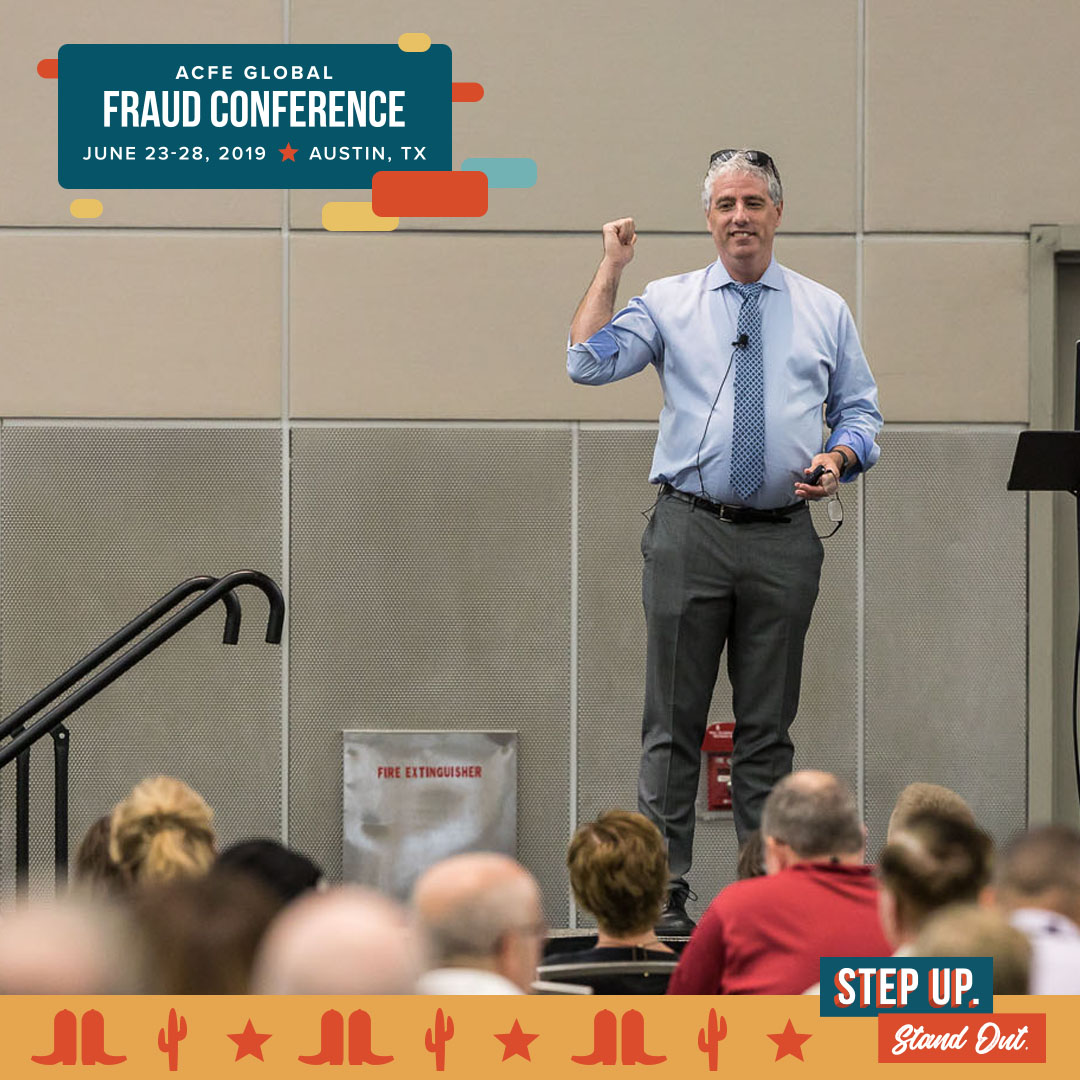Ethical Leadership: It’s Not As Easy As You Think
/When you think of leadership, what springs to mind? Is it authority? Confidence? Having a vision? Do you think leadership is something assigned to people? Or does it occur naturally? If you’re the leader of a team or department, you might want to stop thinking about your own thoughts and look outward.
“Everybody has their own definition of leadership,” said Bret Hood, retired FBI Special Agent and the director of 21st Century Learning & Consulting, in his Monday-morning session at the 30th Annual ACFE Global Fraud Conference. “Who’s definition is most important? … The people you’re serving.”
Hood discussed the challenges everyone faces with making ethical decisions. Most people believe they are ethical, but they are only judging themselves based on what he called the “cold state.” He also called this state of being the “should self” — it’s how you know you should act and the decisions you know you should make. While your intentions may be admirable, when you actually need to make decisions, you’re often in the “hot state” — where stress and pressure color your behavior and may cause you to act differently than you intended.
Similar to the cold and hot states are what Hood calls system 1 and system 2 of your brain. System 2 handles rational thought and might be employed when you are looking to buy a new car — you are likely comparing different models and features and weighing price options. System 1 however is the part of your brain that is engaged when a deer suddenly sprints in front of that new car. It’s pure reaction. “95% of the decisions you make every day are using system 1,” said Hood.
These hot and cold states, along with systems 1 and 2, are important to know in order to understand why well-intentioned people make unethical decisions. For those in positions of leadership, it’s especially important to be cognizant of barriers to remaining ethical since you’re likely influencing your team’s behaviors through your actions.
Hood shared a story about a bagel company that dropped off bagels at an office building every morning and employed an honor system for payment. Employees could take a bagel and were expected to leave a certain amount of money per bagel in a can next to the bagels, which the bagel company would collect at the end of the day. They noticed that the floor with the lowest-ranking employees on average paid the full amount for the bagels eaten 92% of the time. The floor with middle management paid the full amount 80% of the time, while the floor with executives only paid up 62% of the time. “The people who make the most money were least likely to pay. Why? Entitlement,” said Hood. “As soon as you start climbing that ladder, your empathy for others goes down.”
That lack of empathy can then lead to unethical practices or decision-making. Hood recommended leaders encourage their employees to speak up. “The No. 1 thing a team needs is psychological safety,” said Hood. You have to create a culture where your team feels comfortable coming to you with problems. “That’s how you protect yourself — getting different perspectives,” said Hood.
Hood ended his session with three of the most important questions he thinks all leaders should ask themselves to ensure they make ethical decisions:
Are you willing to empathize and go out and meet with people?
Are you willing to take accountability for your actions?
Do you have someone who will give you the unfiltered truth?
So when you approach potential ethical dilemmas in the future, keep in mind that your secret weapon may be the people under you.



